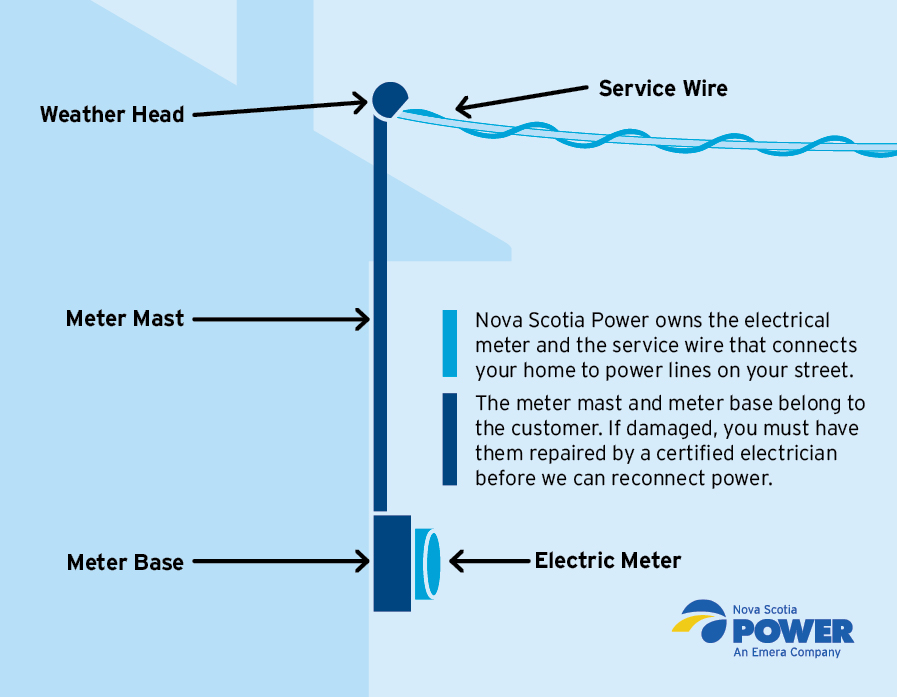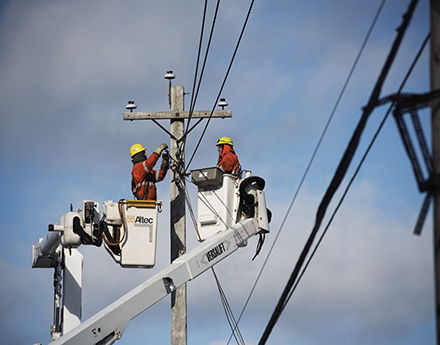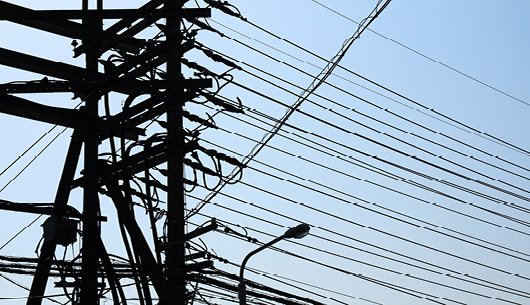1.
Turn off or unplug any electrical appliances or equipment that was left on. This will help avoid power surges when your power is reconnected.

We’re working closely with local authorities as they respond to the Long Lake wildfire in West Dalhousie. When impacted Nova Scotians prepare to re-enter their homes, there are some important safety steps to follow.
If you come across a downed wire, stay 20 feet away, treat it as energized and report it to our outage line at 1-877-428-6004.
Turn off or unplug any electrical appliances or equipment that was left on. This will help avoid power surges when your power is reconnected.
Complete a visual inspection of the electrical equipment running into your home, including your meter base, meter mast and service wires. If your home itself and/or electrical equipment was impacted or damaged by fire, you may need a certified electrician to make repairs before crews can restore your power. See our visual below for more information.
If you see a downed wire around or near your home, call our outage line at 1-877-428-6004 to report it.
Due to the chemical composition of lithium-ion batteries, exposure to open flames or extreme heat can cause dangerous reactions like fire, explosion or release of toxic and flammable gases. If your home has been damaged by fire, there is an increased risk of re-ignition, as fire-damaged storage batteries have the potential for re-ignition after initial extinguishment. Use caution and contact the fire department if you suspect you might be at risk.
In the event of visible or suspected damage to a battery storage device or an electric vehicle:
*Only certified professional electricians should handle damaged electrical and battery equipment.
**Only personnel qualified to safely remove damaged battery equipment from the home should do so.
To help ensure your power is restored as quickly as possible, you should check for damage to your electrical equipment.
Have a look at your meter mast. It’s the tube that connects the service line to your home. Has the meter mast pulled away from your house? Is it bent or broken? If so, you’ll need a certified electrician to make repairs. We're here to help get you reconnected safely and quickly. For more information and to contact an electrician, visit our Repair a Damaged Meter page.

.png?sfvrsn=1f9373c8_8)
For your safety and the safety of our crews, please remember these crucial safety measures:
1. Do not attempt to handle downed powerlines—they should be treated as live or energized.
2. Be aware of trees touching or tangled up in overhead lines—don’t attempt to cut them down yourself.
3. Keep a safe distance from crews working on the scene—don’t walk through or near by because it can be dangerous.
4. Stay off the road unless necessary—traffic could create more hazards to our crews and delay restoration efforts.

